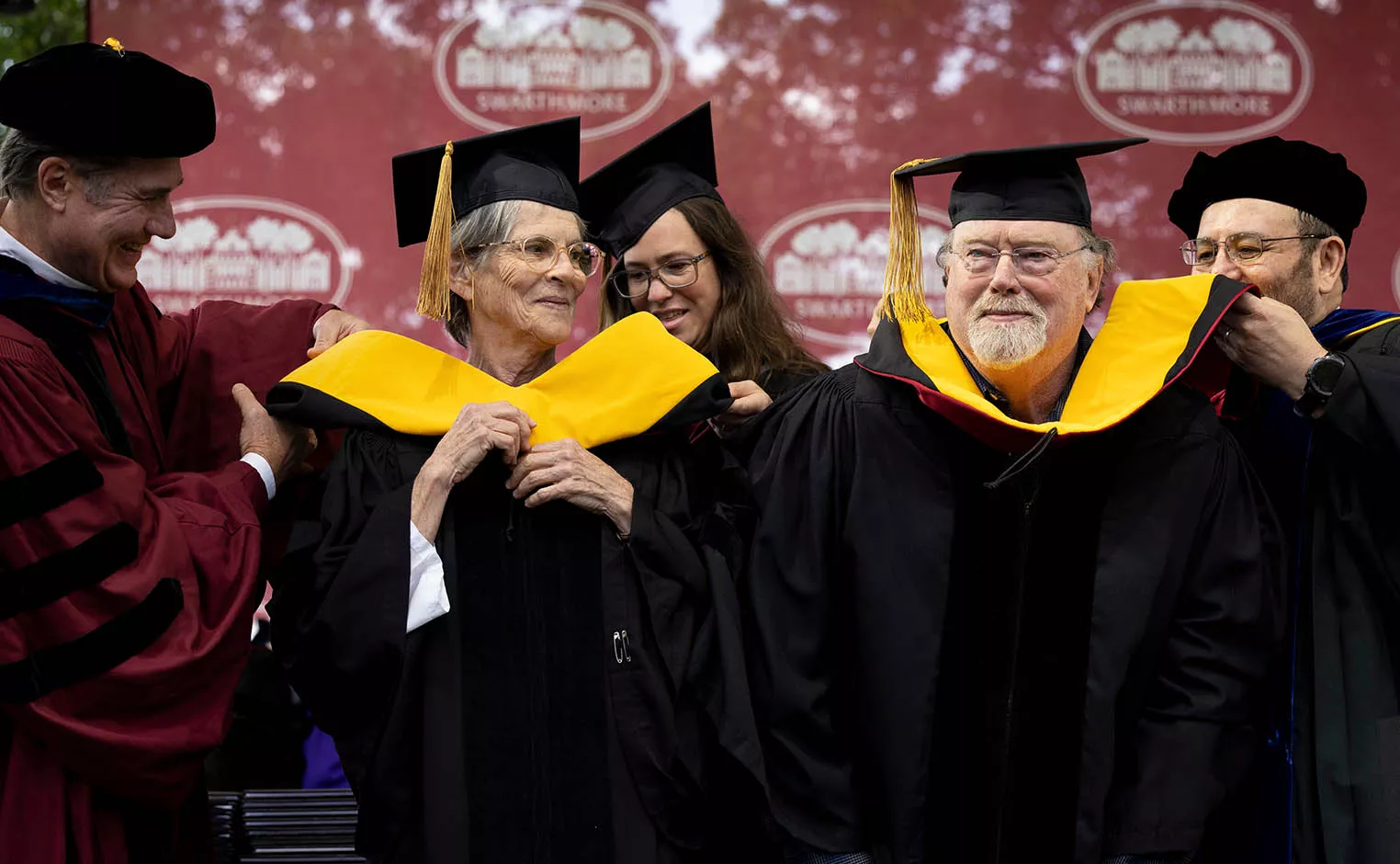President Valerie Smith's Charge to Amy Vedder '73 & Bill Weber '72

Amy Vedder, Swarthmore Class of 1973, and Bill Weber, Class of 1972, your commitment to your work and to each other is a testament to the Quaker edict to Let Your Life Speak.
Amy excelled in math and science at Swarthmore and graduated with honors in biology and psychology. During her time with the Peace Corps in the Democratic Republic of Congo (DRC), she first observed the critically endangered mountain gorillas that would capture her imagination. Rather than accept the prevailing wisdom that their extinction was inevitable, Amy believed otherwise. She focused her studies on field biology and shuttled back and forth between field work in Rwanda and completing her Ph.D. in zoology. She spent months observing gorilla families and conducting ecological analysis at Volcanoes National Park. Her research showed that the gorillas carefully selected the vegetation they ate — including more than 100 plants and shrubs that were not formerly known — proving their habitat was viable. They didn’t have to go extinct after all.
Building on her experience in the mountain gorilla project, Amy took on larger efforts. She led projects in other comparable mountain ecosystems, such as Rwanda’s Nyungwe Forest, and in Uganda, Burundi, and eastern DRC.
Amy Vedder, you have said that working with Bill on important global projects that have shown tangible results has given you an optimistic view of life, and the belief that one can make a difference. And now, upon the recommendation of the faculty, and by the power vested in me by the Board of Managers of Swarthmore College and the Commonwealth of Pennsylvania, I have the honor to bestow upon you the degree of Doctor of Sciences.
Bill Weber, Swarthmore Class of 1972, majored in psychology. After graduation, he joined Amy in the Peace Corps and served as a teacher in the DRC. During their travels, he was moved by the human poverty he observed on the fringes of the great savanna parklands they visited. Wanting to investigate how conservation and tourism might benefit local people, Bill pursued a Ph.D. that combined his interests in social science and wildlife.
Ecotourism was not yet a concept. But Bill cultivated relationships with leaders in the national and local governments and the bureaus of parks and forestry. He got to know the local community and school officials. And he and Amy came up with a visionary, three-part approach — focusing on education, tourism, and anti-poaching — that proved alternatives to poaching would be both sustainable and profitable.
They defied the naysayers. Mountain gorillas have become a national treasure in Rwanda. A silverback even appears on the 5,000-franc bill.
Bill Weber, you have said that your work with Amy shows that “if you make an effort, you can make a difference” — and that “cooperation is a powerful tool.” What a powerful example you have set for our graduates. And now, upon the recommendation of the faculty, and by the power vested in me by the Board of Managers of Swarthmore College and the Commonwealth of Pennsylvania, I have the honor to bestow upon you the degree of Doctor of Sciences.



